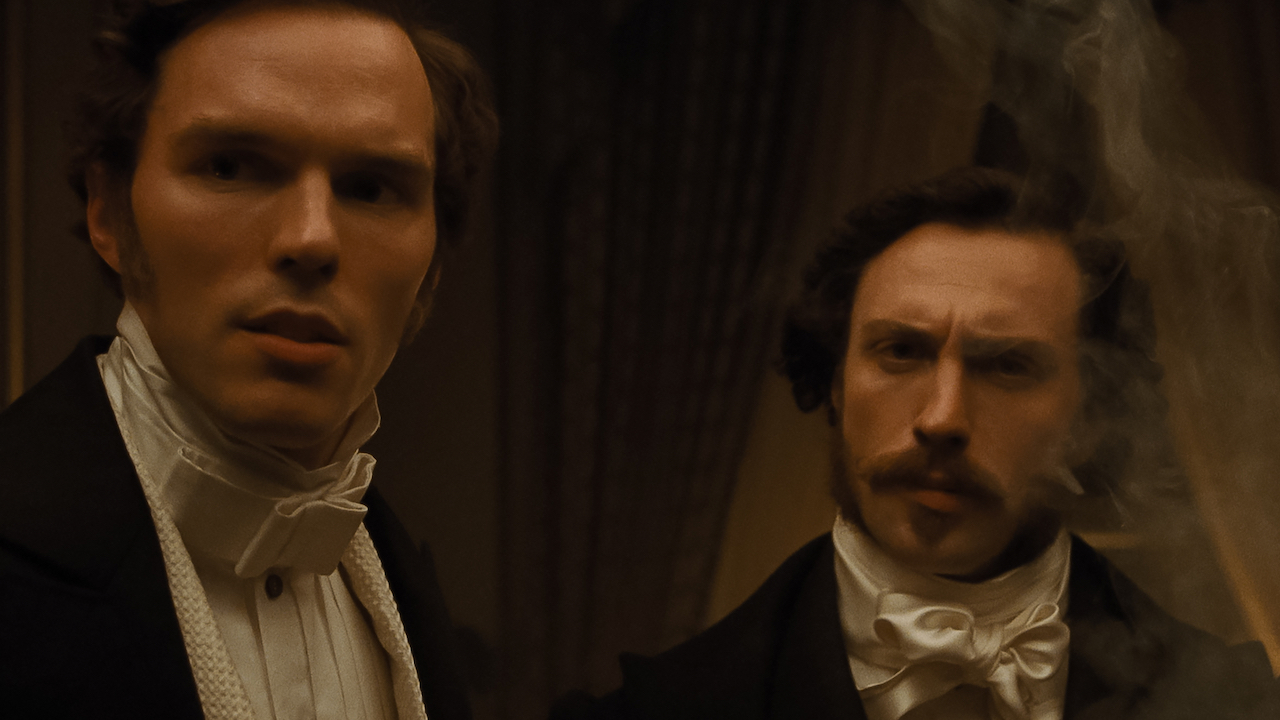Since the beginning of early cinema, Count Dracula has been featured in hundreds of movies. However, the first time audiences were introduced to Bram Stoker’s blood-sucking character was in F.W. Murnau’s unofficial silent film adaptation Nosferatu where the book’s names and details were changed. Compared to adapting yet another Dracula movie, American filmmaker Robert Eggers decided to sink his teeth into a Nosferatu remake -- and he has a good reason for choosing this upcoming horror film as his next venture.
Given Nosferatu's an unofficial version of Dracula, you’d think Eggers would want to adapt the celebrated Bram Stoker novel instead. However, the historical horror filmmaker told Screen Rant why he chose to remake F.W. Murnau’s silent classic instead:
I mean, as much as I love the novel, it is a little bit overstuffed with Victoriana. I think something about the Murnau adaptation is just a simple fairy tale. I actually think that simple fairy tale that is at the core of the Stoker novel is the thing that has made it so adaptable and so versatile and kept people so inspired over the past century.
Honestly, I can understand where Eggers is coming from. Adapting a book that’s “overstuffed with Victoriana” may not resonate well with modern audiences, and it doesn't seem to be the story he wanted to tell. The director's previous movies have explored horror folklore and myth, includingThe Witch delving into Puritan fears of witchcraft and The Lighthouse draws on seafaring legends. Compared to the heavy details examined in Stoker’s novel, he appears drawn to the heart of the story: A young woman confronting evil in the form of a spooky vampire.
In the original public-domain horror film, Nosferatu was told from the perspective of real estate agent Thomas Hutter (who will be played by Nicholas Hoult in the remake), who experiences the horrors of Count Orlok’s vampiric nature. This time around, Robert Eggers explained why it was important that his version of the timeless classic was told through the point-of-view of Thomas Hutter’s wife, Ellen:
Something that I really loved about the Murnau film is that it ends with the female protagonist being the heroine. I thought that it would be potentially more exciting if the whole film is told through her eyes, because it had the potential to be more emotionally and psychologically complex than an adventure story about a real estate agent. As much as it is a scary horror movie - and it is, there's even jump scares - it is a gothic romance, and it's a tale of love and a tale of obsession.
Female empowerment is surely something that will hook modern audiences compared to the classic horror trope of a damsel in distress. Rather than seeing Ellen as merely a victim of Count Orlok’s obsessions through the eyes of Thomas Hutter, her perspective allows us to delve into her mind to further understand her mental state and inner strength. The modern plot change allows audiences to get to know a complex character rather than Ellen simply being used as a plot device.
Robert Eggers knows the story of Nosferatu backward and forwards due to his obsession with the German Expressionist vampire film from a young age. From understanding each character through his many watches, I feel like he has a good perspective on where the story should go. He further explained why Ellen was the best choice to focus on compared to Thomas Hutter or even Count Orlok himself:
Through her eyes, I think we can really get into that mode more without it becoming the tragic anti-hero story of a lovelorn vampire, which I'm also less interested in.
The Northman director makes a good point about straying away from feeling sympathy for Count Orlok. Films in the past have gotten criticism when the point of view is of the villain; for example how one of Joker’s biggest criticisms was creating a tragic backstory for Arthur Fleck to feel sympathy for his journey toward anarchy. Plus, the "lovelorn vampire" trope has also been done to death. If Eggers wants a fairy tale, I agree it’s best to keep it simple.
Listen, the best vampire movies have starred blood-sucking mythical creatures in various forms, including the archetypal vampire in the Dracula movies, the child-like beings in Let the Right One In, or even the sparkly romantic ones found in Twilight. This time around, Robert Eggers’ Nosferatu remake tells us we’ll be going back to the eerie roots of the vampire myth with Bill Skarsgård’s version of Count Orlok so “terrifying” that promotions don’t even show his face! Frankly, I can't wait.
The 2024 movie release of Nosferatu will be in theaters on Christmas Day.

